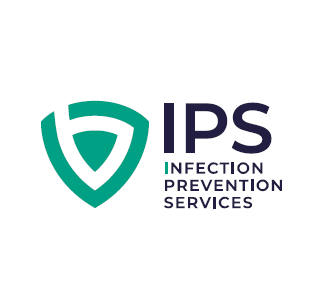The Daily Challenges
Faced by IPC Leads
The role of an infection control specialist is not
without its hurdles. Many face considerable daily challenges:
- Resource
limitations: Budget constraints often affect the availability of essential
supplies, such as PPE and cleaning materials.
- Time
pressures and workload: IPC Leads often juggle multiple
responsibilities, making focusing solely on infection control challenging.
- Resistance
to change among staff: Introducing new protocols or enforcing their compliance
can sometimes be met with resistance from care staff, requiring excellent
communication and management skills.
- Balancing
effective IPC practices with the well-being of residents: It is
crucial to protect residents from infections without compromising their
quality of life and social relationships.
The emotional toll of managing outbreaks, especially during
a pandemic, can be significant. This highlights the need for support and
recognition for this critical role.
Implementing Effective
Strategies: Practical Solutions and Tools
Improving infection control compliance requires more
than good intentions. IPC Leads need practical tools and strategies to manage
outbreaks effectively and prevent the spread of infections.
- Utilising
data for trend analysis: By tracking infection rates and analysing
patterns within a community, such as an aged care facility, areas that
require intervention can be identified and adjusted accordingly.
- Developing
practical outbreak management plans: These must be detailed and cover
every step from early detection of an outbreak to containment and
post-outbreak review.
- Implementing
preventative measures: Proactive steps such as regular hand hygiene
audits, environmental cleaning, and vaccination programs are essential.
- Leveraging
technology for IPC: Mobile apps, like the IPS Hub, can provide quick
access to information on policies, guidelines, and best practices.
The Future of IPC
Leadership in Aged Care
The future of IPC Leadership in infection control
requires a proactive approach. It is about integrating IPC into organisational
governance and fostering an overall culture of prevention. Here are a few
considerations:
- Integration
with organisational governance: IPC should not be a separate element
of aged care, but an integral part of the overall quality and safety
systems.
- Innovation
in IPC practices: Always explore recent technologies, methods, and
approaches to stay ahead of emerging threats.
- Advocating
for better IPC resources: IPC leads must recommend necessary resources
and support.
- Promoting
a culture of infection prevention: To engage all stakeholders, from
staff, and residents and their families, to understand and participate in
infection prevention. By doing so, the safety of the facility is better ensured
and allows everyone involved to feel responsible and engaged in the
process.
The goal is to move beyond reactive measures to a proactive,
preventative approach supported by adequate resources and organisational
commitment.
Conclusion: Empowering IPC Leads for a Healthier Future
IPC leadership in aged care demands dedication, skill, and
continuous learning. It is about more than just following protocols; it is
about safeguarding the health and well-being of vulnerable, aged residents. To
move forward:
- Invest
in your IPC Leads: Provide the training, resources, and support needed
to succeed.
- Recognise
their value: Acknowledge their critical role in keeping aged care
facilities safe.
- Promote
a culture of prevention: Engage staff, residents, and families in
understanding and supporting IPC efforts.
Empowering your IPC Leads creates a healthier and safer
environment for all, demonstrating a commitment to quality care and
compassionate leadership.
Infection Prevention and Control (IPC) in aged care requires
a multifaceted approach, with governance, clinical oversight, and continuous
improvement as crucial elements. Effective IPC also depends on clear and
consistently updated policies, regular audits, consistent monitoring, and
thorough education and training.
IPC leadership involves more than just
managing outbreaks; it also entails proactively addressing all IPC issues,
integrating IPC into general care protocols, and fostering a culture of safety.
Considering the well-being of older adults, a risk-based approach to IPC
balances infection prevention with the maintenance of social connections,
quality of life, and mental health.
Implementing IPC practices in aged care settings can be
complex, and balancing the need to prevent infection with the well-being of
residents is crucial. How can aged care facilities create a truly
person-centered approach to infection prevention, ensuring resident safety and
quality of life

